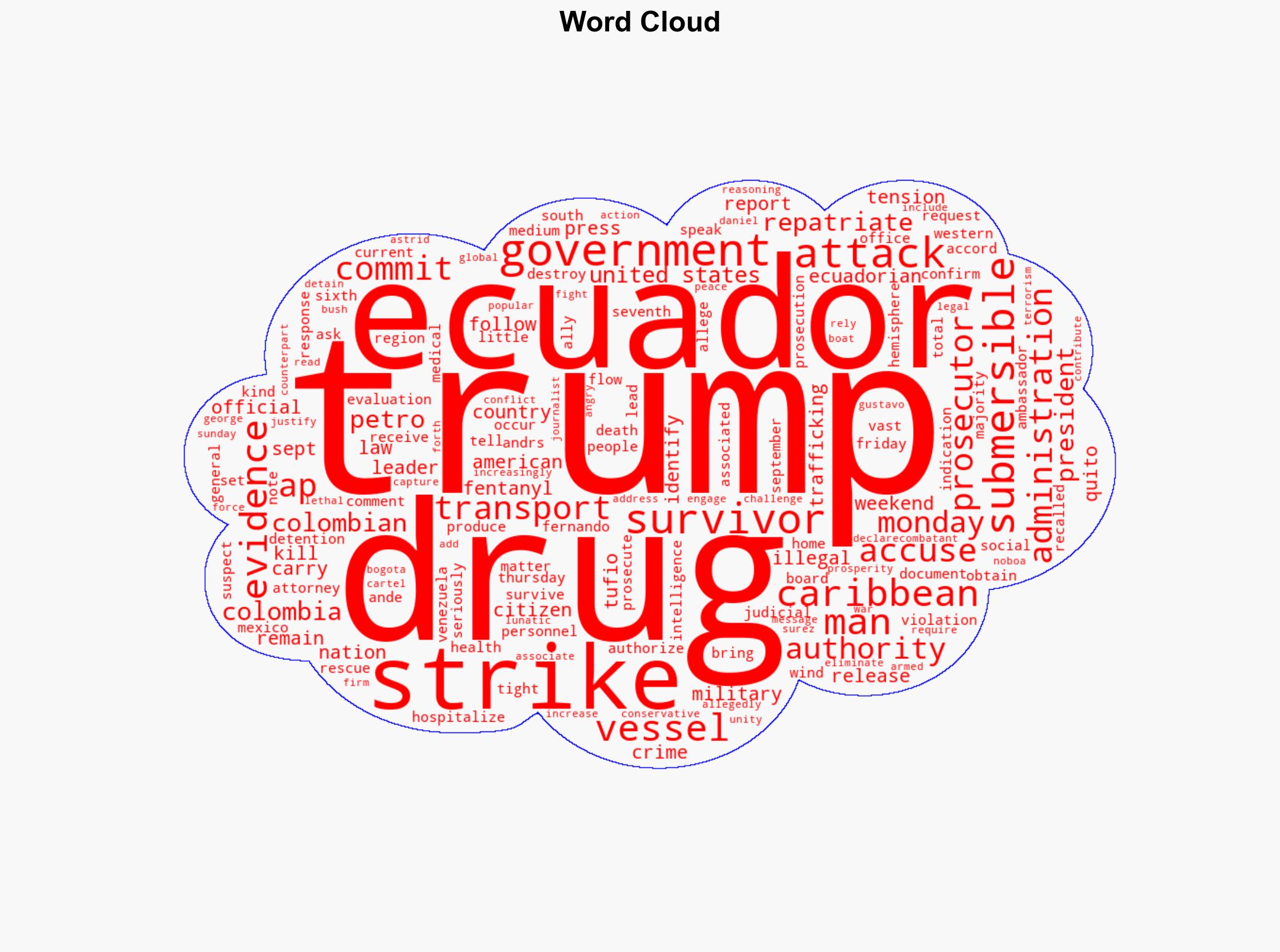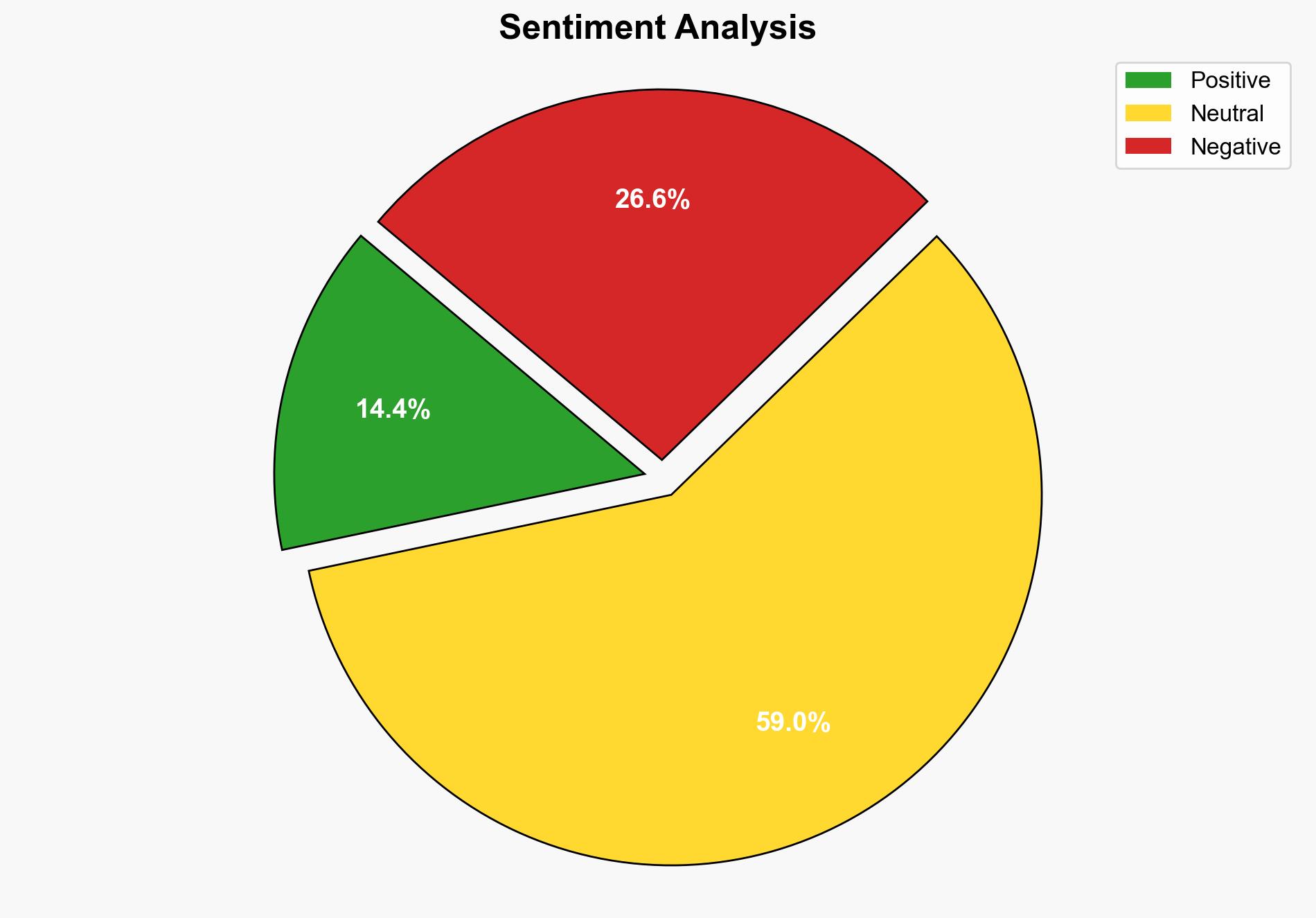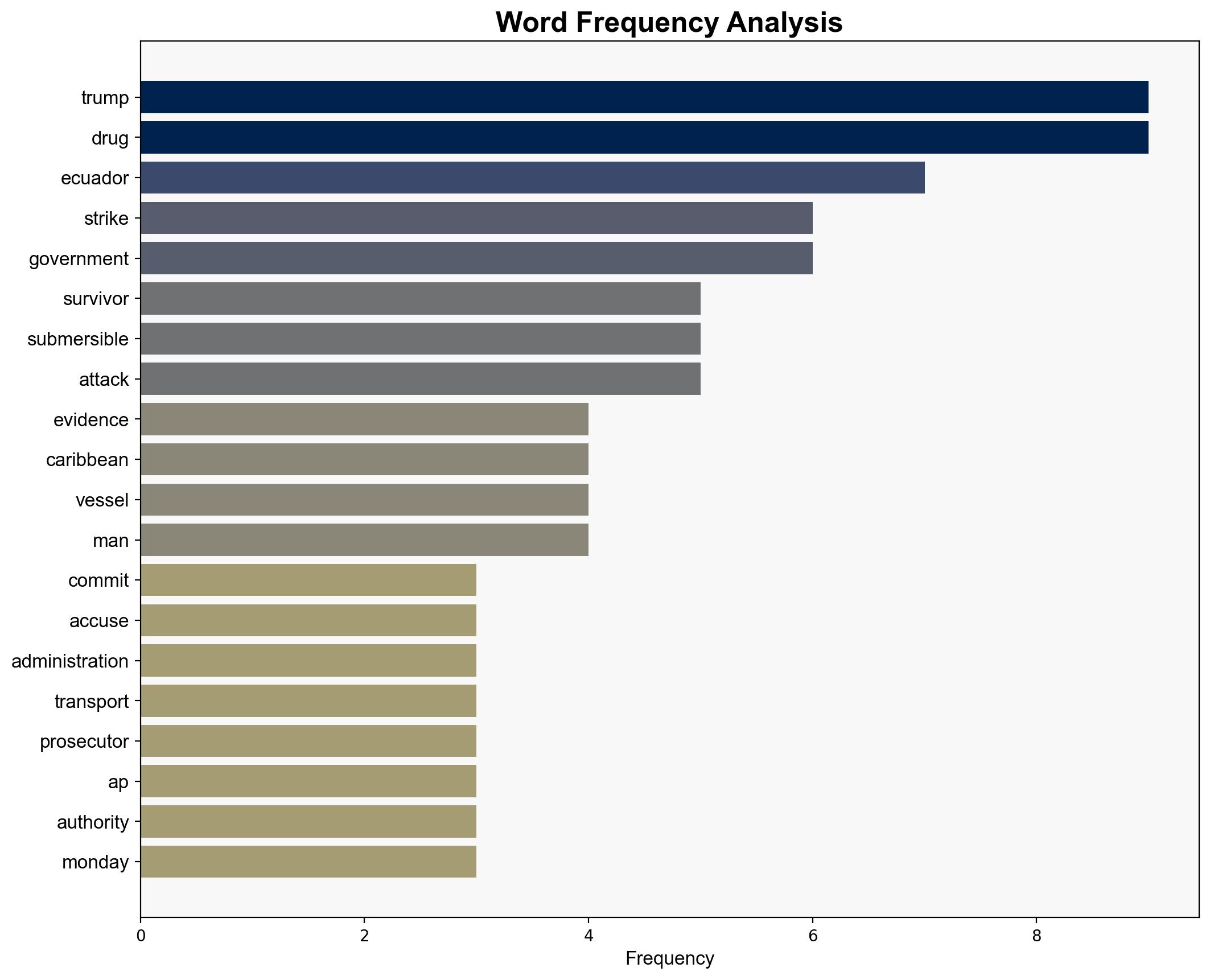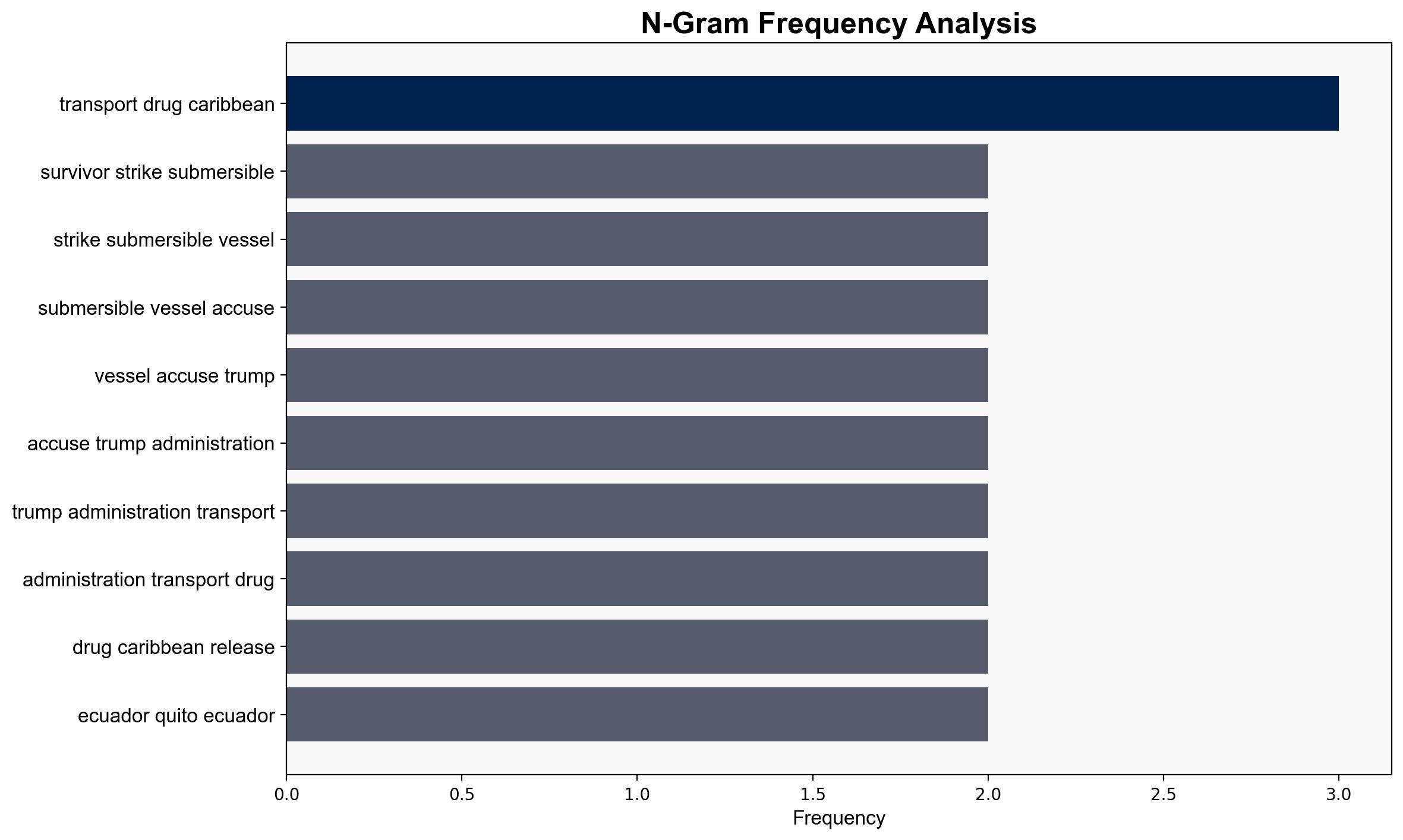Ecuador says it has no evidence that survivor of a US strike in the Caribbean committed any crime – ABC News
Published on: 2025-10-21
Intelligence Report: Ecuador says it has no evidence that survivor of a US strike in the Caribbean committed any crime – ABC News
1. BLUF (Bottom Line Up Front)
The most supported hypothesis is that the US strike on the submersible vessel was based on intelligence indicating drug trafficking activities, but the lack of evidence against the survivor, Andrés Fernando Tufiño, suggests possible intelligence gaps or misinterpretation. Confidence level: Moderate. Recommended action: Conduct a thorough intelligence review and diplomatic engagement to prevent regional tensions.
2. Competing Hypotheses
1. **Hypothesis A**: The US strike was justified based on credible intelligence that the submersible was involved in drug trafficking, but the lack of evidence against Tufiño is due to operational oversight or intelligence gaps.
2. **Hypothesis B**: The US strike was a miscalculation, possibly influenced by political pressures or faulty intelligence, resulting in an unjustified attack on the vessel and wrongful accusations against Tufiño.
Using ACH 2.0, Hypothesis A is better supported due to the historical context of drug trafficking in the region and previous similar operations. However, the absence of evidence against Tufiño raises questions about the accuracy of the intelligence used.
3. Key Assumptions and Red Flags
– **Assumptions**: The US intelligence was accurate and the submersible was indeed involved in drug trafficking.
– **Red Flags**: Lack of evidence against Tufiño; potential bias in US intelligence assessments; political motivations influencing military actions.
– **Blind Spots**: Possible underestimation of local geopolitical dynamics and the impact of US actions on regional stability.
4. Implications and Strategic Risks
– **Geopolitical Risks**: Increased tensions between the US, Colombia, and Ecuador could destabilize regional alliances and cooperation.
– **Economic Risks**: Disruption in regional trade and investment due to heightened political tensions.
– **Psychological Risks**: Erosion of trust in US intelligence and military operations in Latin America.
– **Escalation Scenarios**: Potential retaliatory actions by affected nations, leading to broader regional conflicts.
5. Recommendations and Outlook
- Conduct an independent review of the intelligence that led to the strike to identify and rectify any gaps or biases.
- Engage in diplomatic dialogues with Ecuador and Colombia to address concerns and prevent further escalation.
- Scenario Projections:
- **Best Case**: Successful diplomatic resolution and strengthened regional cooperation against drug trafficking.
- **Worst Case**: Breakdown of diplomatic relations and increased regional instability.
- **Most Likely**: Ongoing diplomatic tensions with gradual resolution through multilateral engagement.
6. Key Individuals and Entities
– Andrés Fernando Tufiño
– President Gustavo Petro
– President Daniel Noboa
– President Trump
7. Thematic Tags
national security threats, regional focus, drug trafficking, intelligence analysis





